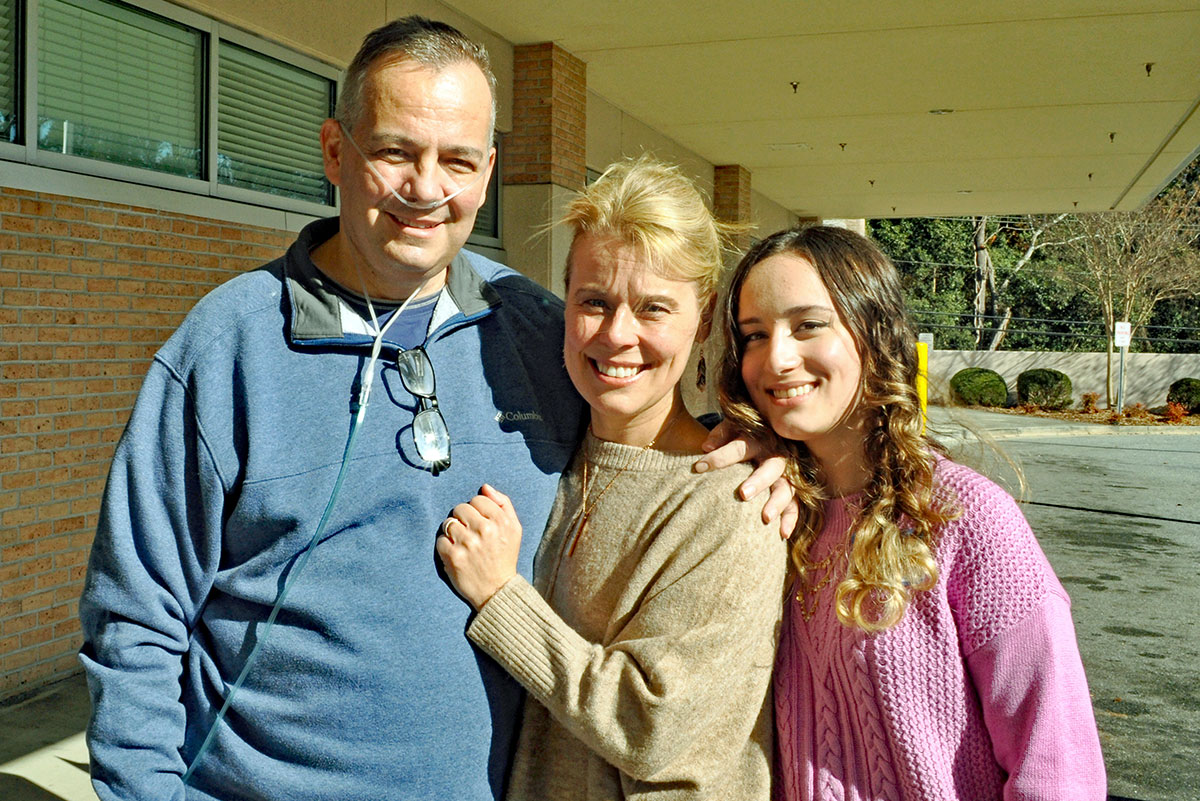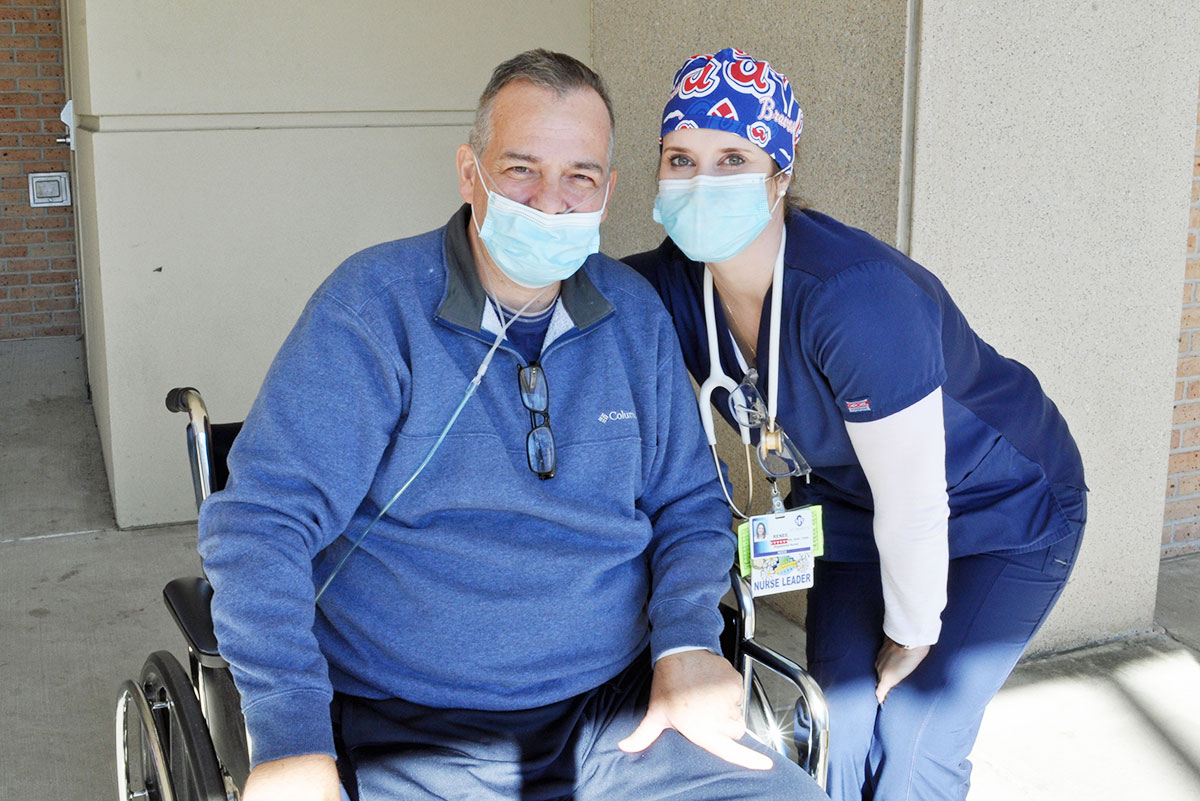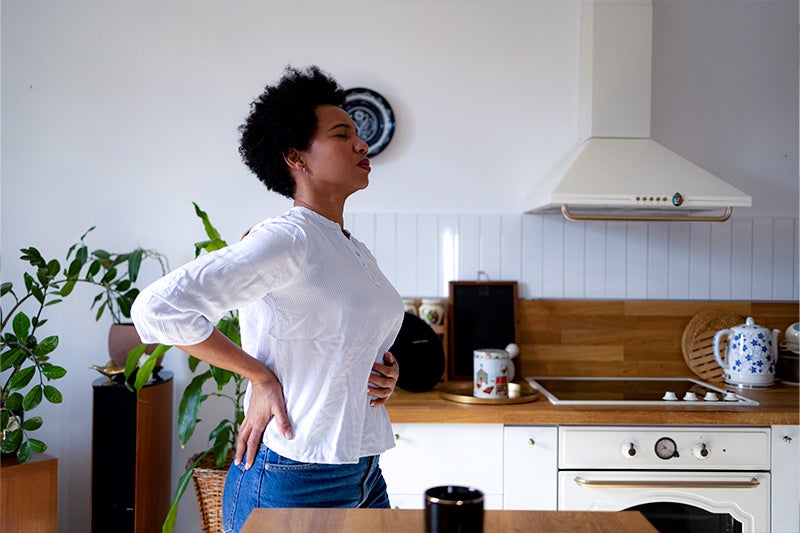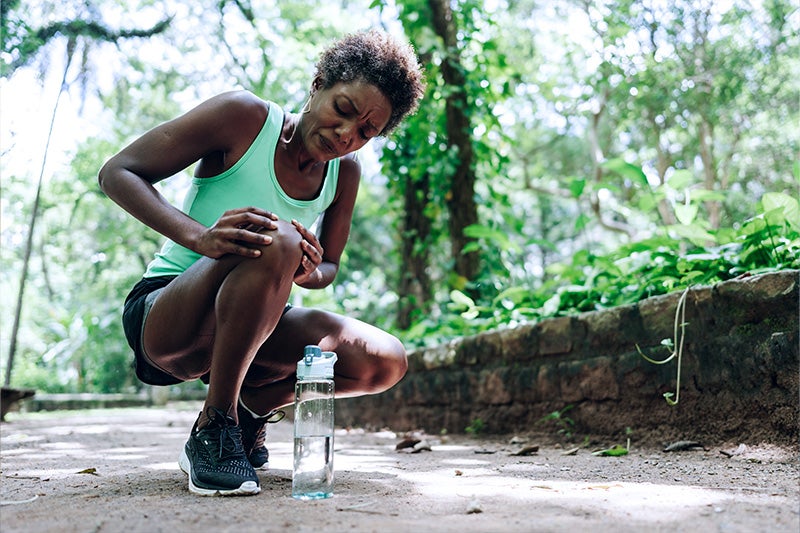Fanfare for a COVID Survivor
December 20, 2021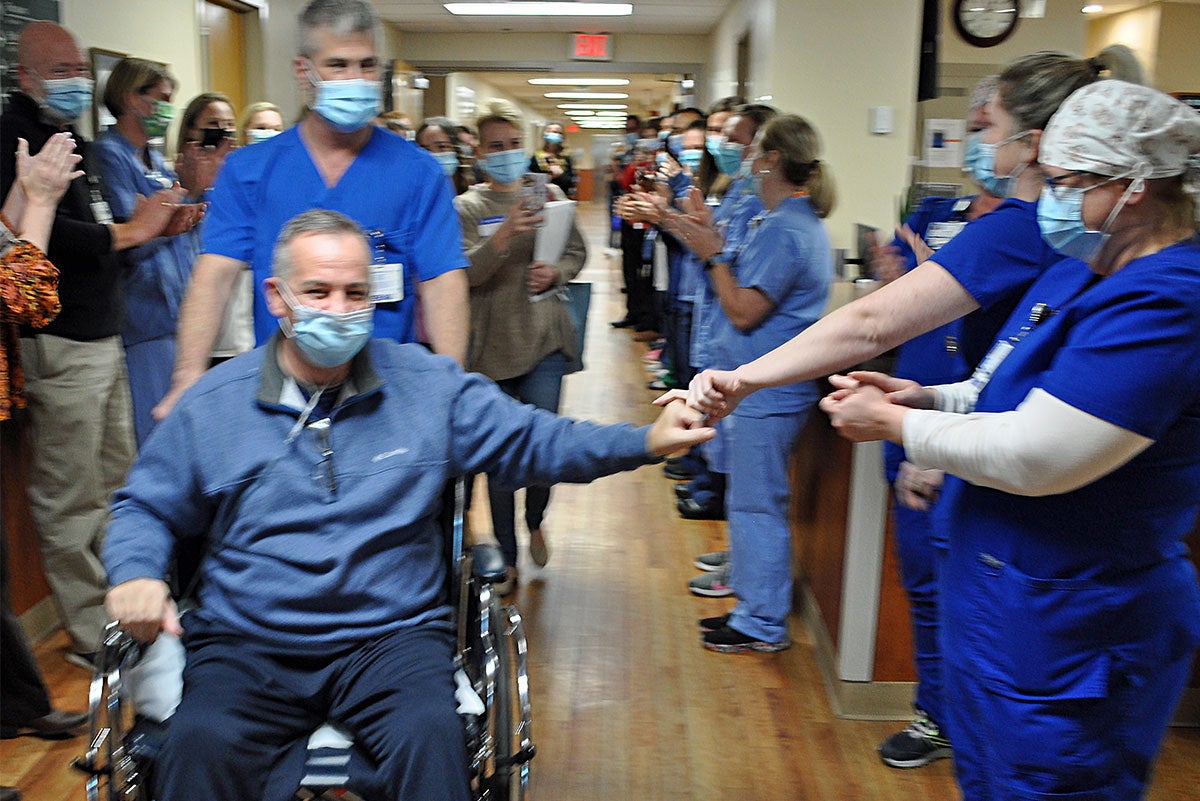
By: Mark Ralston
Categories: COVID-19, Patient Stories
St. Mary’s gives Troy a standing ovation as he heads home
After 82 days in the hospital, COVID-19 survivor Troy Clark was going home. As his wheelchair turned into the main hallway on St. Mary’s 5th Floor, he was greeted by the cheers of dozens of hospital staff. He felt tears rise.
“I literally love the people who were taking care of me,” he says. “It was emotional to leave.”
COVID attacks
Troy is an industrial electrician with a large firm in the Atlanta area. His wife, Michal, works from home for a communications tower company, and their daughter, Melina, is a high school student. They love living in Putnam County near Lake Oconee.
As the Delta variant surged last summer, Troy saw several coworkers come down with COVID. “They would be out for two weeks, but then they’d be back. They would look awful, but they’d be back,” he said.
So he wasn’t worried when he developed a fever near the end of August. He went to an urgent care clinic, was diagnosed with COVID, and went home to recuperate. It wasn’t fun, but about two weeks later, he woke up with no fever and generally feeling better.
However, he soon started having trouble breathing. Alarmed, Michal took him to St. Mary’s Good Samaritan Hospital where doctors found his blood oxygen saturation was 82 percent – dangerously low. They admitted him.
Crisis after crisis
The next day – September 11 – he was worse. His doctors had him transported to a critical care unit at St. Mary’s Hospital in Athens, which – fortunately – had a bed available. A week later, Sept. 25, he was moved to a regular room and cleared for visitors. Michal came to see him, but was surprised by how rough a day he was having. The next day, he sent her a text message: come ASAP. He was headed back to critical care.
“When I got there, the doctor told me he was in respiratory distress,” she says. “He was fighting so hard to breathe they were concerned he might have a heart attack.”
Doctors ordered a breathing tube and ventilator to ease the stress on his heart. For days on end, Troy lay pronated in his ICU bed, mostly unconscious. It looked like he was improving, but when doctors tried to remove his breathing tube, he rapidly declined. They recommended a tracheotomy as a better solution.
“It went pretty well for a while,” Michal says, “but then he went downhill again.” At one point, his lungs collapsed. His doctors and nurses saved him, but the medications for his lungs were damaging his kidneys. When his team eased off the lung medications, his breathing worsened. When they resumed his lung medications, his kidneys worsened. At one point, his kidney function was so low he needed dialysis.
“Then, his kidneys came back. That was a miracle,” Michal says.
Through it all, his critical care physician, Dr. Nehal Bhatt, remained calm and focused. “He is brilliant. We put a lot of trust in him. We feel it was a combination of prayer, miracles, and brilliant people working on Troy that got him through this.”
She is especially grateful that the team never gave up. “I knew it was serious, but they never removed my hope,” she says. “They told me what was happening and what they could do, but they didn’t take me on a road we weren’t on. So many people told me this was not the end game, that he could still get better.”
On the mend
You will notice Michal is telling this part of the story. That’s because Troy remembers almost nothing from the eight weeks when he was in ICU. But as his kidneys and lungs recovered, he began spending more time awake. And being Troy Clark, he wanted to joke with the nurses and doctors.
“But I was still on the trach, so I couldn’t talk,” he says. “That was hard on me, but not on them. They treated me wonderfully. It got me wondering if maybe I talk too much.” He laughs.
And while he found ways for his playful personality to come through, he mostly stayed busy just breathing.
“They never scared me,” he says. “They didn’t talk about how close to the edge I was. They let me focus on breathing and getting better. I’d been in hospitals before for surgeries, but this was the most comfortable stay I’d ever had. I felt spoiled."
A caring, responsive staff
“I was going through this with my husband, but the staff were going through it with every patient in every room on the unit,” Michal says. “They always came into our room with a smile, but I saw what they were going through and that they were shaken by what they were dealing with.”
“COVID-19 has put a terrible emotional and physical burden on the entire care team,” agrees Dr. Jason Smith, St. Mary’s Chief Medical Officer. “They do an incredible job not showing that pain, but it can be very difficult emotionally to provide care to so many patients who are very, very sick, and often can’t have loved ones with them due to the risk of transmitting COVID to others.”
Because Troy had cleared the initial infection, Michal was able to visit him. One day, staff made it possible for her to cut Troy’s hair. It was a little thing, but it was a big boost for their spirits. Another time, she was concerned about some of the ingredients in his liquid nutrition (he had to be tube-fed while on the ventilator). St. Mary’s dietitian worked with her to find a product she felt he would tolerate better.
“I so appreciate the flexibility of staff wanting to work with us to make things better,” she says.
Getting ready to return home
By this time, Troy was physically very weak. Regular physical therapy had staved off the worst effects of debilitation, but he wasn’t strong enough to go home. So, Troy was admitted to St. Mary’s Center for Rehabilitative Care, where he received intensive physical and occupational therapy for 10 days to help him get ready to return to active living.
As his discharge approached, Michal conspired with CRM Program Director Rebecca Swick to give Troy a special send-off. They invited his caregivers and other hospital staff to line the hallway when it was time for him to leave. To his surprise, he left the unit to the sight and sound of those who had worked to save his life cheering for him. In the elevator, he couldn’t hold back the tears.
And then it was over. Almost four months after his diagnosis and 82 days in the hospital – including eight weeks in intensive care and 40 days on a ventilator – Michal and Melina took him home.
Moving forward
Troy continues to use supplemental oxygen and will receive home health care, including physical therapy, for about two months. He had already begun weaning off his pain medication within days of going home. And he has follow-up appointments with a cardiologist and a pulmonologist to continue the recovery of his heart and lungs.
Most importantly, he is surrounded by the love of family and friends all across the U.S. He and Michal shared a video of his “hero’s walk” as he left St. Mary’s, and within hours had hundreds of responses.
“They all had the same reaction I had,” Troy says. “They all said they cried. That moment and all the care I received, it will live on. We love them, all the doctors and nurses. If we’re ever in need of a hospital again, we’ll be back.”
